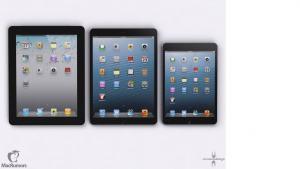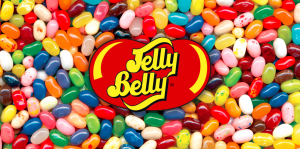7Ways Consulting: Be a Non-trepreneur, Part 2: Keep it Simple, Silly: Vayetze & The Success of the Beatles, Jelly Belly, and iPad
by The7Ways | Nov 6, 2013 | Rabbi Bailey’s Blog |
Keep it Simple, Silly: Vayetze & The Success of the Beatles, Jelly Belly, and iPad
This is part 2 of my series on being a non-trepreneur. A non-trepreneur is someone who balances supporting themselves in a realistic way with keeping his or her entrepreneurial dreams and plans alive.
The title of today’s lesson is borrowed from the famous cliché axiom of the so-called ‘K.I.S.S. doctrine’: “keep it simple, silly”.
 Very often people try to develop products or ideas that are very elaborate or intricate. Innovative products and successful companies have markedly simple elements at their core. Great products are, more often than not, simple and straight-forward in what they provide to the consumer. Great companies are usually held together by simple methods of interaction and offer simply clarity in their goals and missions. Long, intricate, all-inclusive mission statements are useless and provide no direction for an organization (see Patrick Lencioni’s works).
Very often people try to develop products or ideas that are very elaborate or intricate. Innovative products and successful companies have markedly simple elements at their core. Great products are, more often than not, simple and straight-forward in what they provide to the consumer. Great companies are usually held together by simple methods of interaction and offer simply clarity in their goals and missions. Long, intricate, all-inclusive mission statements are useless and provide no direction for an organization (see Patrick Lencioni’s works).
It’s Simple
When it comes to simplicity, we already discussed not reinventing the wheel in Part 1. Applying that to this lesson, nothing can be simpler than providing basic services in an area where they are in demand (i.e., rather than trying to be the next Bill Gates).
 When the Biblical Ya’akov (Jacob) camps, “vayichan”, in the outskirts of a city called Shechem, The Talmud understands that he did not simply lodge there, but that he graced and beautified the city—chein in Hebrew—through different creative innovations.
When the Biblical Ya’akov (Jacob) camps, “vayichan”, in the outskirts of a city called Shechem, The Talmud understands that he did not simply lodge there, but that he graced and beautified the city—chein in Hebrew—through different creative innovations.
“Rav says, he established coinage for them …”
“Shmuel says, he established marketplaces for them …”
“Rebbe Yochanan says that he established bathhouses for them.” (Shabbat 33b)
If you see a basic demand or clear opportunity, go for it. Provide supply for the demand. If there’s a need for a grocery store or another accountant in an area, this is a wise place to open up shop (depending upon your skill set—more on that next week).
With products and developing a company, the next step beyond basic demand is applying “simpler is better” to your product or small business.
How we interface with Apple products is a good example. Touch screens, intuitive layouts, and easily-used design give iPhones and iPads appealing products. Apple could have built an elaborate robot to be your personal servant, but instead they build much simpler iPads and iPhones, which are basically convenient extensions of yourself. This robot appendage makes your life a whole lot easier and more enjoyable, and all it is basically is a pipeline for other things!
In the realm of music, the same idea applies. When it comes to beautiful simplicity, artists like The Beatles reign supreme.
Contrast music from The Beatles to a word-heavy hip-hop song (not all hip-hop music is word-heavy, and some is melodious, but focus here on a poorly-written, wordy rap-type song with over-done beats (i.e., not Dr. Dre beats)). What makes The Beatles’ music so great is that it’s simple and catchy. It’s quite repetitive when you read it in word form, but the basic rhymes and simple messages that capture ideas of love and relationships make it compelling. A wordy hip-hop song isn’t catchy and your brain can’t process well what is being communicated.
Now contrast Jelly Belly to Coke-a-Cola. Jelly Belly jelly beans are so popular and delicious because within each bean an entire experience is  captured. The taste of the popcorn bean transports you to a movie theatre. The chocolate pudding reminds you of name brand puddings you brought to school in your lunch box. The most popular bean, very cherry, is the epitome of the cherry taste you had in the best candies and sodas of your past.
captured. The taste of the popcorn bean transports you to a movie theatre. The chocolate pudding reminds you of name brand puddings you brought to school in your lunch box. The most popular bean, very cherry, is the epitome of the cherry taste you had in the best candies and sodas of your past.
Jelly Belly’s innovation came as it developed jelly beans to capture the simple flavors of life. They even use the actual item to flavor your bean (pudding, fruit juice) that they are trying to capture (most of the time). They also were the first to inject the flavor of the bean into the center. Simple, authentic , tasty.
Contrast that to Coke. Coke is highly addictive and tasty for most people, but it doesn’t capture another taste or situation. It is extremely popular, but its appeal is like a visceral intruder that is spoiling you with a sugary, caffeine-riddled jolt, whereas as jelly Bellies give you a warm, authentic feeling.
All Art and Tiferet
Isn’t it strange that food or a visual presentation can capture a feeling or idea, or transport you to another time and place?
This concept is built into all of creation as the kabbalistic sefirah called “tiferet”. In a cryptic metaphor, tiferet is described as the “klall she’bprat” “a general within a specific”. This metaphor is in line with this post’s conception of art and flavorings.
 Within one part of creation, a lot more lies. A song captures a feeling, without outright saying the feeling; a painting is really just colors strewn on a canvas, but it makes use think about people and places we’ve encountered before; the flavor of a little coffee jelly bean conjures up the latte you had this morning. One can see this in literature and movies, with the characters and their struggles reflecting and capturing real-life situations and feelings. It’s all built into creation with the sefirah of tiferet.
Within one part of creation, a lot more lies. A song captures a feeling, without outright saying the feeling; a painting is really just colors strewn on a canvas, but it makes use think about people and places we’ve encountered before; the flavor of a little coffee jelly bean conjures up the latte you had this morning. One can see this in literature and movies, with the characters and their struggles reflecting and capturing real-life situations and feelings. It’s all built into creation with the sefirah of tiferet.
Dreams are another good example of meaningful metaphor. Psychologists and the Talmud both explain that dreams have metaphorical significance. They are part real, part symbolism. The real part is the content, and the symbolism is meant to be interpreted.
In this week’s parsha, Ya’akov, the paradigm of tiferet, has dreams that relate to his current state (leaving Israel, his relationships with Gd) and future prophetic events (prophecy is also given in metaphor, meant to be deciphered). If we can decipher our own dreams—both those we have asleep and awake—we can find deeper components of our wishes and unfulfilled desires.
Gd) and future prophetic events (prophecy is also given in metaphor, meant to be deciphered). If we can decipher our own dreams—both those we have asleep and awake—we can find deeper components of our wishes and unfulfilled desires.
In Sum
In Sum, lesson 2 of non-trepreneurship is to keep it simple. Go for basic demand, and if you develop a small business, keep the communication simple and clear If you develop a product or service, don’t get too elaborate. The more you can provide a tangible, practical service, the better. The more straight forward–the more “epitomal”—the better.
Next week, for part 3 of our non-trepreneur series we will explore our next principle “keep it you”, which will explore how your endeavors should be suitable for your personality.
–Ian





